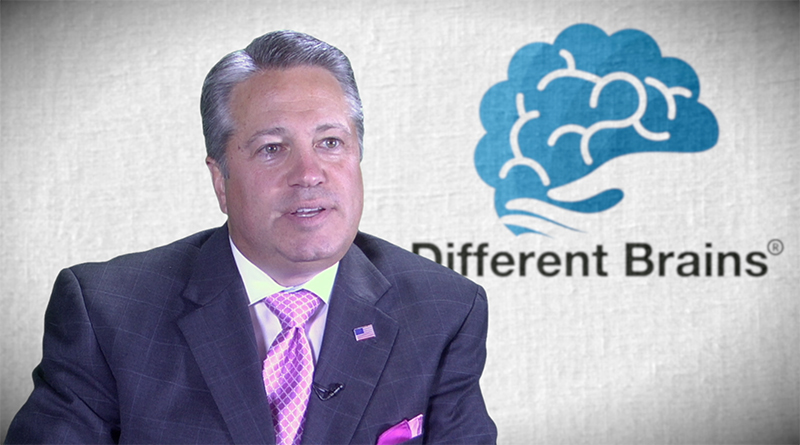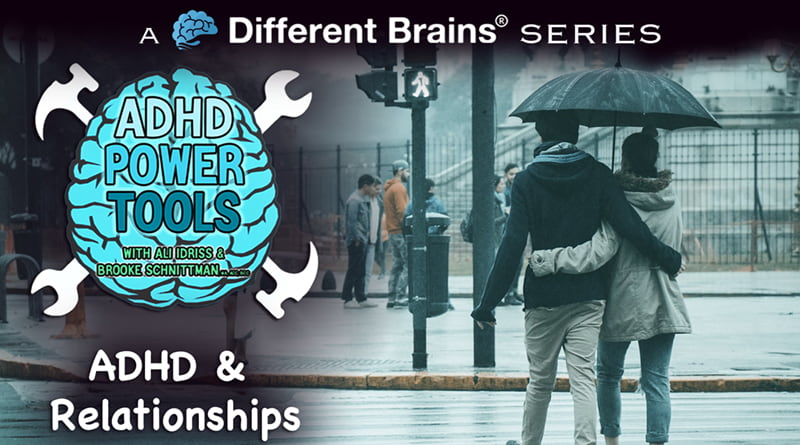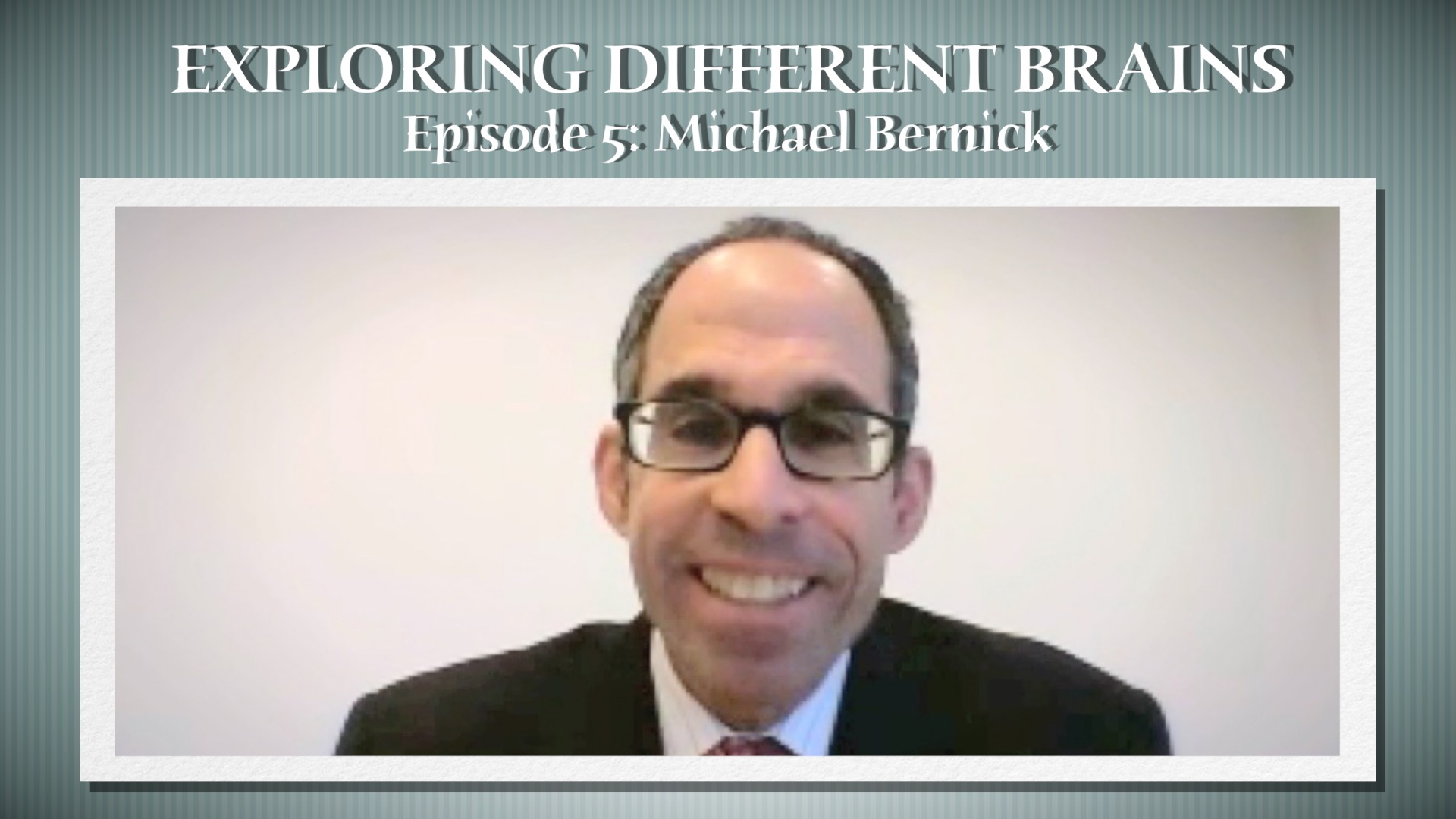Navigating Mental Health Challenges, with Gabriela Guardarrama | EDB 310

Mental Health counselor Gabriela Guardarrama shares her personal experiences dealing with bipolar disorder.
Gaby is an an Outpatient Mental Health Therapist in the South Florida area. She was diagnosed with Bipolar Disorder Type 1 at age 19, and is dedicated to helping others deal with their mental health challenges. She is also a poet who uses her writing as a mental wellness tool, and to help others.
AUDIO PODCAST VERSION:
Or look for us on your favorite podcast provider:
iTunes | Stitcher | SoundCloud
FULL TRANSCRIPTION
Note: the following transcription was automatically generated. Some imperfections may exist.
HACKIE REITMAN, MD (HR):
Hi, I’m Dr. Hackie Reitman, and welcome to another episode of Exploring Different Brains. And today I have the honor and the privilege of interviewing, Gaby Guardarrama, who is a mental health counselor, a self advocate, and a friend too. Welcome.
GABRIELA GUARDARRAMA (GG):
Thank you Dr. Hackie. It’s a pleasure to be here today.
HR:
Tell us about yourself how you got into being a counselor in psychology. It
GG:
all started in kindergarten, actually, everyone was just playing in the playground. And I was like, What do I want to do when I’m older? And I always said, I don’t know yet. But I want to help others. That’s all I told myself.
HR:
And can you share a bit about your own challenges with mental health issues?
GG:
That’s a lot of them. But I think the biggest one was when my dad went to prison when I was 19. And I got Baker Acted because I did not do well, with the transition of losing him. And I was diagnosed with bipolar disorder, type one. In the hospital, I voluntarily went to be Baker Acted, and it was a challenge.
HR:
And what is your most vivid memories from that era of your life?
GG:
I felt very broken. I felt lost. And I fell incapable of living.
HR:
And how did you journey to get where you are today, obviously successful and doing well?
GG:
A lot of support from others. But one day I woke up with purpose. And I prayed to God, I believe in God and a higher power. And I asked him for help. And then with that, I was able to help myself. And through the power of love of others, I was able to pick myself up.
HR:
And you felt that the best way to help others. Looking at your own experience would be in the field of psychology?
GG:
It helps tremendously being empathetic, and being able to relate to others with similar scars. What I like to use the theme of my life would be being a wounded healer.
HR:
Tell us about some of the tools that you used as a self advocate, what you used for your own tough times.
GG:
I like to call them coping skills. But um, I could list a bunch of them. But honestly, the one that helped the most is mirror exercises and affirmations. Even if you don’t believe in them at the moment, fake it till you make it really comes in handy. And just looking at yourself trying to have that you know, connection with you. Eye contact because eye contact was very difficult for me in the beginning after the when I was in the broken era. So challenging myself every day looking at the mirror trying to see what I see congruent with what is in reality versus mentally because there’s a lot of mental chatter. There’s a lot of dark thoughts we can go through on a daily basis if you’re not in treatment. Like I wasn’t till I would say I had medication regimen since I was 16 to 19. And then I stopped because I got into like a car accident and because of the the dosages they were still formulating the medication regimen, then I was able to manage with my psychiatrist guidance, and I trusted him. And thanks to that. I’ve been steady with medication till this day.
HR:
What would you consider your lowest point?
GG:
Losing myself, losing myself to my vices, losing myself to my conditions making myself feel that I am what I have. Not separating them?
HR:
Well, one tool you haven’t mentioned that I love reading, I love reading your wonderful, wonderful poetry. Tell us about how you got into poetry and something about your feelings about the poetry.
GG:
Oh I love poetry, as you know. I feel it’s a way to connect with humanity. I feel like it’s a way to communicate your story out to the world. It’s a way to reach out. It’s a way to open your heart and not be scared of what people might say. Because you’re not doing it just for the feedback. You’re doing it To help others. For me, at least, when I, when I write, I want to feel that I’m not alone. That’s all it is honestly, to help, to not feel isolated, and to build that human connection that we crave.
HR:
Well, you’re very inspirational. Gabby, I gotta tell you, this is I’m enjoying this very much, and I’m learning a lot. You describe yourself as a wounded healer. Just expound on that a little bit more, if you might.
GG:
Okay. I’ll give you an example. Addiction, right? A lot of people can undergo circumstances that lead into an addictive behavior, I will share this. My dad was an alcoholic, it hurt me so badly, that I never chose to drink. And I have not drink since I endured that and it was in a very rocky situation with him since I was very young. So my addiction turned out to be gambling and food. It turned into that form. Because instead of gambling for entertainment, I was gambling to run away from my problems. And that’s just the surface level of deep rooted issues, like the bipolar. So it’s the surface, right? And it’s like an iceberg. But in the, you keep picking on it, you’re gonna find something deeper. So what am I trying to say? When you’re a wounded healer? If anyone out there that has gone through addiction, it may be any type like drugs, it could be the gambling, it could be so many outlets for them, right? But if you haven’t been in their shoes in a form of addiction, it might not speak to them. So those similar scars, though, addicts have, they can connect better. It doesn’t have to be the same route. But it’s nice to know. Wow, that person knows the daily struggle, the daily dialogue I have with myself, am I gonna gamble today? Am I going to use today? Am I gonna do the same pattern I’m trying to maybe break and addiction has no face. We all have our battles. And that’s why I like to say as a wounded healer, be kind because we don’t know what we’re fighting every day. It’s a silent battle Hackie.
HR:
Gaby What does bipolar disorder look like to the individual themself?
GG:
So for bipolar disorder type one, there are manic and depressive episodes. Mania looks like risky behaviors, and a lot of impulsivity. So it could look like gambling, for example, it could look like drug usage, it promiscuous Acts it can be especially Miami, risky driving, and so much more. And then the depressive episodes very isolated. It can look like feelings of hopelessness. It can be a lot of sadness and depressed mood and Indonesia, which is loss of pleasure and activities you’d like to do. Like it could be your coping skills like writing, reading, exercising, and you’re not doing them.
HR:
What advice do you have, if one is the parent or a family of such an individual and they want to be of help?
GG:
Seek treatment, therapeutic services are available. even consider psychiatry, medication management is a big, big recommendation. It’s hard to not have both combined. It’s important to have therapy services, plus the psychiatry because the psychiatrists will work with the therapist
HR:
Is that for the individual or for the family member and the caring individual who wants to be of help?
GG:
That’s specifically for the individual because psychoeducation can be learned from the individual through therapy, that then they can bring in the family for their family therapy sessions, if necessary for wanted because It’s very difficult for a loved one to have another loved one have bipolar disorder, because I not sure if you’re aware, bipolar individuals have the highest suicide rates. I was not aware, statistically proven. They go through with it more than any other population with mental illness.
HR:
And what are the associated behaviors that you may or may not have?
GG:
Well, before when I was 19, it was more depressive episodes. Now it’s a more manic episodes, I forgot to mention, compulsive shopping, like I like to hide it as retail therapy is a big, risky behavior, too. I like the gambling, and that’s not the best. The impulsive Ness can stem from with my food addiction to the binge eating. So that’s more of the manic because when I binge eat, I’m trying to cope with my emotions in an unhealthy manner.
HR:
What other forms of what I call for lack of a better term positive addictions to substitute for the negative addicitons?
GG:
Right? That’s a very good question. Because addiction, where like for individuals with addiction, are always going to have addiction. So it’s very important to substitute, like you said, So exercise is mainly the best one to replace the like, for me with the food, you know, because it’s not just replacing it, it’s building a healthier relationship with the food. Because and if you don’t shift that mindset, it becomes difficult to try to do the exercise every day too. Because, like for the gambling, I’m not sure if you’re aware, but I like to see my relationship with money as a version of how I see myself in my self worth, in the sense that each time I’m gambling away my earnings from my job as a therapist, and my really respecting my career path and my really showing what I’m worth in my profession, just wasting away everything I worked hard on that reflects on my self worth. Because your relationship with money should be healthier than that. Do you get where I’m coming from? Yes, I do. Same thing with the food how you have a relationship with food, it shouldn’t be a form of punishment. If you’re overdoing it. It should be a form of nourishment for the soul. So it’s not just substituting the addiction with another like because I’m not gonna want to go to the gym for five hours every day. It’s about incorporating like 30 minutes of cardio maybe some way building like training when the machines or with the gambling, instead of gambling, let’s budget and have savings and invest in ourselves for a rainy day or for a dream like traveling or buying that dream house, right?
HR:
Gaby, what was your lightbulb eureka moment, when you realized I need some help.
GG:
I pushed everyone away. I pushed all my friends. I tried pushing my family members, they were not having it. I was utterly alone. And I wanted to be alone. And that’s when I knew I wasn’t me. I completely lost myself to my depressive episodes. I counted one year, I had about 36 depressive episodes. And that was a lot Tinder. One time I had an episode that lasted a month of suicide ideation like wanting to hurt myself every day for that month. So when I realized, hey, this isn’t working, I think it’s time to change and get help. And I was more receptive to receiving help. Because I went through the stages of like denial. Oh, no, I can connect with individuals have mood disorders, but I don’t have one. And that’s not healthy. It’s hard to reach the accepting stage. But it’s doable. If I can do it. Anyone can do it.
HR:
Gaby, I know your your mom has a very close friends. And talk a little bit about if you would like to your relationship with your mom and some of her friends who support her.
GG:
Well I I can tell you, my mom is my world. I love her. She was the main support system throughout my era of healing now. And my era of brokenness then. And what I can say is my mom is a very strong, independent, free, confident, loving, and kind, compassionate, empathetic individual that I admire every single day. Without her standing by my side, I would not be the person that I am right now.
HR:
Very well said.
GG:
and her friends or her family, that that’s the best way to put it. I don’t see them as friends, I see them as family. Because by her side, she is a stronger individual as well. And it reciprocates on their end to their strong powerhouse.
HR:
Is there anything we have not covered that you’d like to cover today?
GG:
I just want to say, when it comes to mental illness and mental health, there’s always hope. Despite our feelings, our feelings are always matching reality. Because there’s going to be days that we feel loss, there’s going to be bad days, and there’s going to be good days, and cherish the good and learn from the bad. That’s the biggest takeaway I can give. Because we all have a monster inside of us. But we all have a lot of good inside of us. It’s it’s determined what you feed into the day, which will reflect our actions. And our actions aren’t who we are as a character. But it can lead to our lifestyle and our lead or livelihood. So it’s important to be mindful of what we do. It’s a life script we have in ourselves, we are the authors of our life. We write our story every day. So it’s very important, crucial even to be hopeful. Despite what happens to you in the end of the day, is now what happens to you. It’s what you do with it.
HR:
Gaby I hope you wouldn’t mind but I would love to hear you read one of your poems.
GG:
I am ready. So this one is titled “monster in me”, by me. “The monster is sides of me pertains the following my dark thoughts, depressive moods, gambling and food addictions. I cannot seem to be set free and find this inner peace. My inner child is severely injured and refuses to love herself. However, today marks a new day, I will tame this beast by breaking the chains that label me once as a slave. I solely am fooling myself when I succumb to these destructive thoughts and maladaptive behaviors. My insight that I have collected, portrays that every day is a new opportunity in order to prove to myself that I am no monster. I am a flawed human being who is convinced otherwise. While Why must I continuously give up on myself simple… Maasai stop believing that I can win. I keep telling myself I’m a loser. I’m a failure. And I am a monster. Yet the truth is, these are all areas of improvement that must be attended to time to change and begin a new era of healing. Goodbye monster is me. And hello healed version of me.”
HR:
Beautiful, beautiful. Thank you very much.
GG:
Thank you.
HR:
Gaby Guardarrama its been such a pleasure to have you here today. We hope you’ll come back. And I hope we get to read more of your poetry. You’re terrific and you’re inspirational and and you help a lot of people.
GG:
Thank you Hackie and you’re amazing as well. Thank you for having me.




